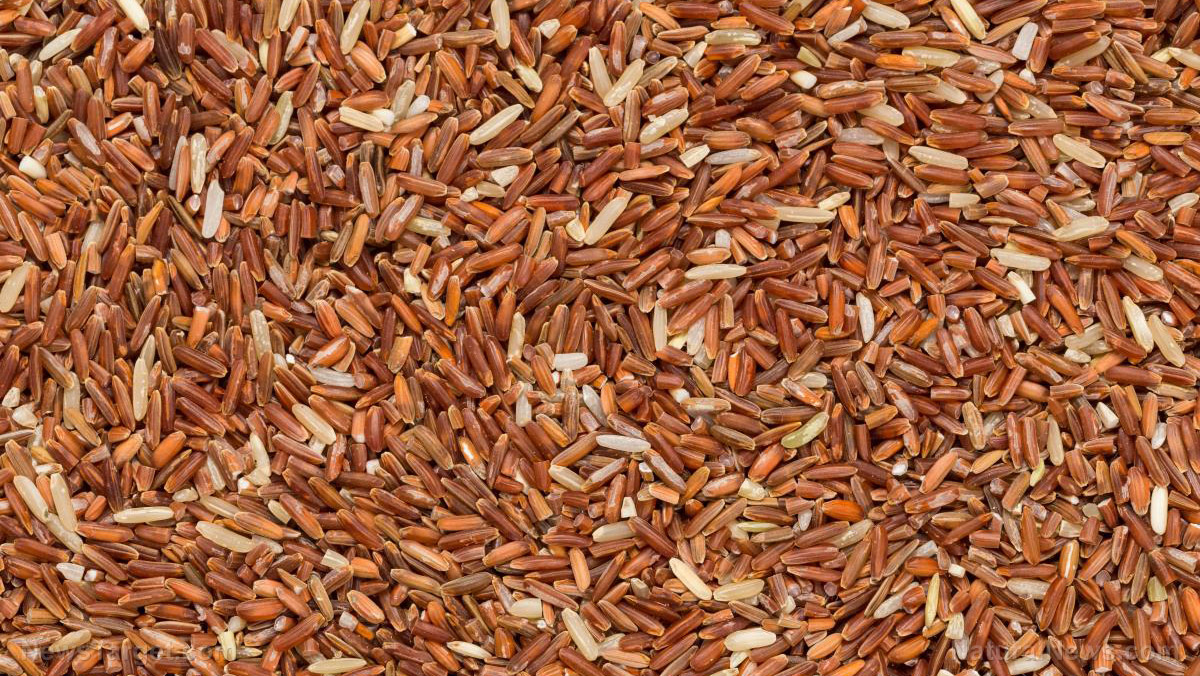Eat more brown rice for a healthier brain
07/09/2018 / By Michelle Simmons

Consuming brown rice (Oryza sativa) has been found to improve cognitive health and prevent the development of Alzheimer’s disease. The animal study, published in the journal BMC Complementary and Alternative Medicine, used a high-pressure technique to increase the digestibility and absorption of brown rice in order to prevent the development of dementia.
Even though brown rice contains nutrients and protective components against the development of dementia, the body cannot properly absorb these because brown rice is difficult to digest.
Therefore, a team of researchers at the Doshisha University, Shimane University, and Shimane Institute for Industrial Technology in Japan pressurized brown rice at 600 megapascals (Mpa) to produce highly-pressurized brown rice. This was done as an attempt to improve digestibility and absorption of brown rice without affecting its nutrient content.
Then, the research team fed it to an Alzheimer’s disease mouse model, senescence-accelerated mouse prone 8 (SAMP8), to look at the effects of the treatment on dementia prevention. They analyzed the working memory of the mice using the Y-maze test at the beginning of the brown rice treatment and then once every month. The mice were allowed to move freely in the maze for eight minutes.
In comparison to the wheat-fed control mice, the mice fed with highly-pressurized brown rice exhibited a higher rate of spontaneous alternation in the Y-maze test. Brown rice also reduced the level of amyloid beta, which is the main cause of Alzheimer’s disease, in their brains. These findings suggested that the highly-pressurized brown rice improved the cognitive dysfunction of the mice by reducing the amount of amyloid beta. The mice treated with brown rice also showed better motor functions than the control and polished rice-fed mice. In turn, this contributed to the preventive effects of brown rice against dementia.
Based on the findings of the study, by improving cognitive function and reducing amyloid beta levels in the brain, the highly-pressurized brown rice can potentially prevent the onset of Alzheimer’s disease and other forms of dementia in humans.
More reasons to eat brown rice
In addition to dementia prevention, there are many other reasons why you should eat more brown rice. Here are some of them:
- It is rich in selenium – Selenium prevents the development of common ailments, such as arthritis, heart disease, and cancer.
- It is packed with manganese – A cup of brown rice can provide about 80 percent of the daily manganese requirements. Manganese does not only help the body synthesize fats, but also supports the nervous and reproductive systems.
- It is a great source of naturally-occurring oils – Naturally-occurring oils are healthy fats that help regulate cholesterol levels.
- It is rich in fiber – The high fiber content of brown rice can help protect colon cancer. These fibers attach to substances that cause cancer and eliminate them from the body.
- It promotes weight loss – Brown rice promotes weight loss due to its high fiber content. It aids in digestion and makes you feel full.
- It is considered a whole grain – As a whole grain, brown rice can help prevent the accumulation of arterial plaque and lower the risk of heart disease and high cholesterol. (Related: Eat brown rice to prevent high blood pressure, lower heart attack risk.)
- It is packed with antioxidants – The antioxidant properties of brown rice can help eliminate potentially harmful oxidizing agents in the body.
- It helps regulate blood sugar levels – Brown rich aids in the regulation of blood sugar levels, which can be especially beneficial for people with diabetes.
- It can treat candida yeast infections – Again, because of its high fiber content, brown rice can help sensitive digestive systems heal from an overgrowth of candida organisms.
Read more news stories and studies on preventing dementia by going to Alzheimers.news.
Sources include:
Tagged Under: Alzheimer's disease, amyloid beta, Brain, brown rice, cognitive function, dementia, dementia prevention, food as medicine, food cures, natural cures, Oryza sativa



















